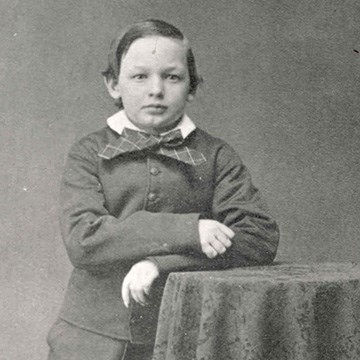Hearing Letters to Lincoln from African Americans
- David J. Kent

- Feb 8, 2024
- 3 min read
By David J. Kent
Washington, D.C.
Wednesday, February 7, 2024

You read that right - hearing letters to Lincoln. And it was a grand event.
As reported by Ed Epstein earlier, prolific historian Jonathan W. White headlined a very special event at Ford's Theatre on Friday, February 2, 2024. The program was called Written Then, Spoken Now: African American Letters to Lincoln. Joining White on stage was acclaimed historian Edna Greene Medford and Denise J. Hart, a professor of playwriting and dramaturgy at Howard University. Along with them were three of Professor Hart's students: John Floyd, Kaiyla Gross, and Nia Savoy-Dock. It was from these three that we heard the letters read.
The program was based on two of White's recent books: To Address You as My Friend: African Americans' Letter to Abraham Lincoln (2021) and A House Built by Slaves: African American Visitors to the Lincoln White House (2022). The latter was a co-winner of the prestigious Gilder Lehrman Lincoln Prize. The former featured the letters from which selections were read. Each of these letters was written by an African American man or woman to President Lincoln. Many were from soldiers from the United States Colored Troops (John Floyd was kept very busy), but others were from wives, widows, and other women writing either to thank Lincoln or ask for his help resolving the ongoing inequalities of African American life. The program alternated between discussions between White, Medford, and Hart and the dramatic readings of several representative letters.
I've heard White speak about these letters in previous events at other venues. He would read excerpts from some of the letters to emphasize his point. But hearing them read by the three student actors brought an incredible new dimension to the words. For example, the series of letters read by Floyd reflected the varying backgrounds and positions of the writers (many of whom had help putting their ideas on paper). When he read a letter from a poor African American from Washington, D.C. seeking his freedom, for example, Floyd didn't read the letter, he acted it. You could hear the desperation in his voice. When he read a letter from a soldier in the field asking why they still were not receiving the equal pay promised, Floyd's voice and mannerisms sounded like a soldier frustrated that he was risking his life while being treated as less than white soldiers. And when he read another letter from highly educated and wealthy Creoles of New Orleans, he brought out their proud, and perhaps even arrogant, manner. Kaiyla Gross and Nia Savoy-Dock also performed their letters in a way that raised the art beyond the simple words as one might normally read them.
The effect was spectacular.
Several Lincoln Group of DC members attended the performance, squeezed in among a packed house that overflowed into the balcony. Audience members were able to pose questions through a QR code in the program, which Hart was able to access in real time on the stage through her tablet, periodically interspersing audience questions into her own prepared inquiries to White and Medford. The interactive aspect of the program further enhanced the power of the performances.
As a crowd filled the Ford's Theatre lobby to get White to sign their books, Ed Epstein and I were able to speak to Edna Greene Medford about a new initiative the Lincoln Group of DC is planning to implement. Prior to the program, the two of us met with Melissa Winn at American Battlefield Trust to discuss plans related to the 2026 semiquincentennial. More on both of those initiatives soon.
[Photo by David J. Kent]




Comments